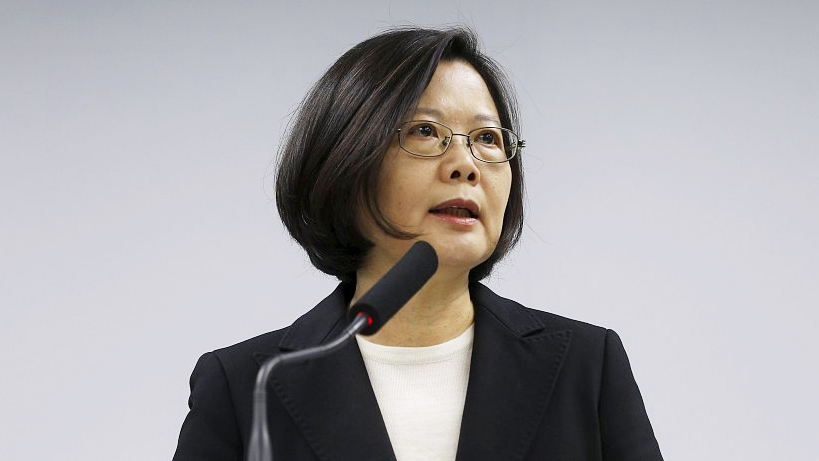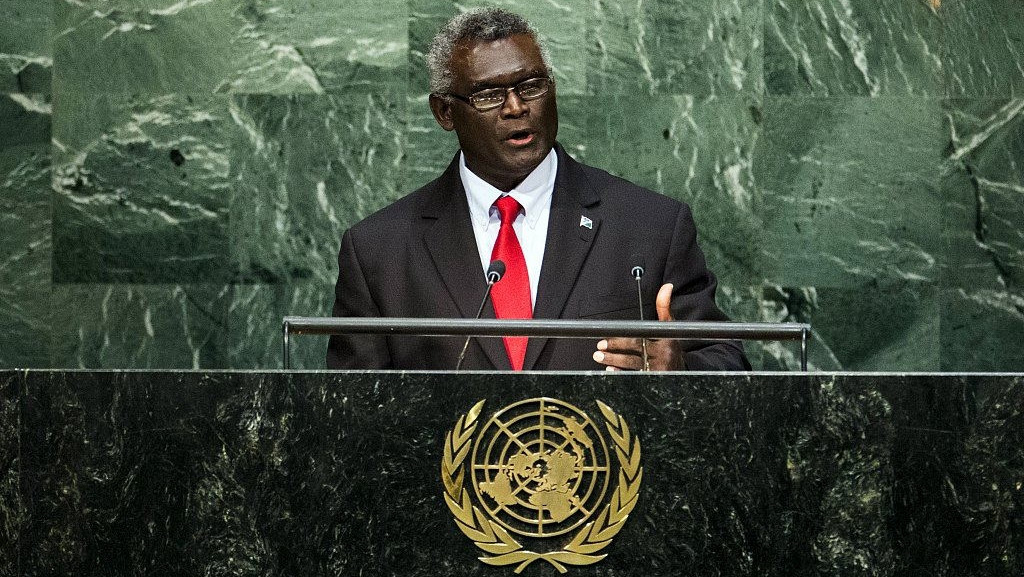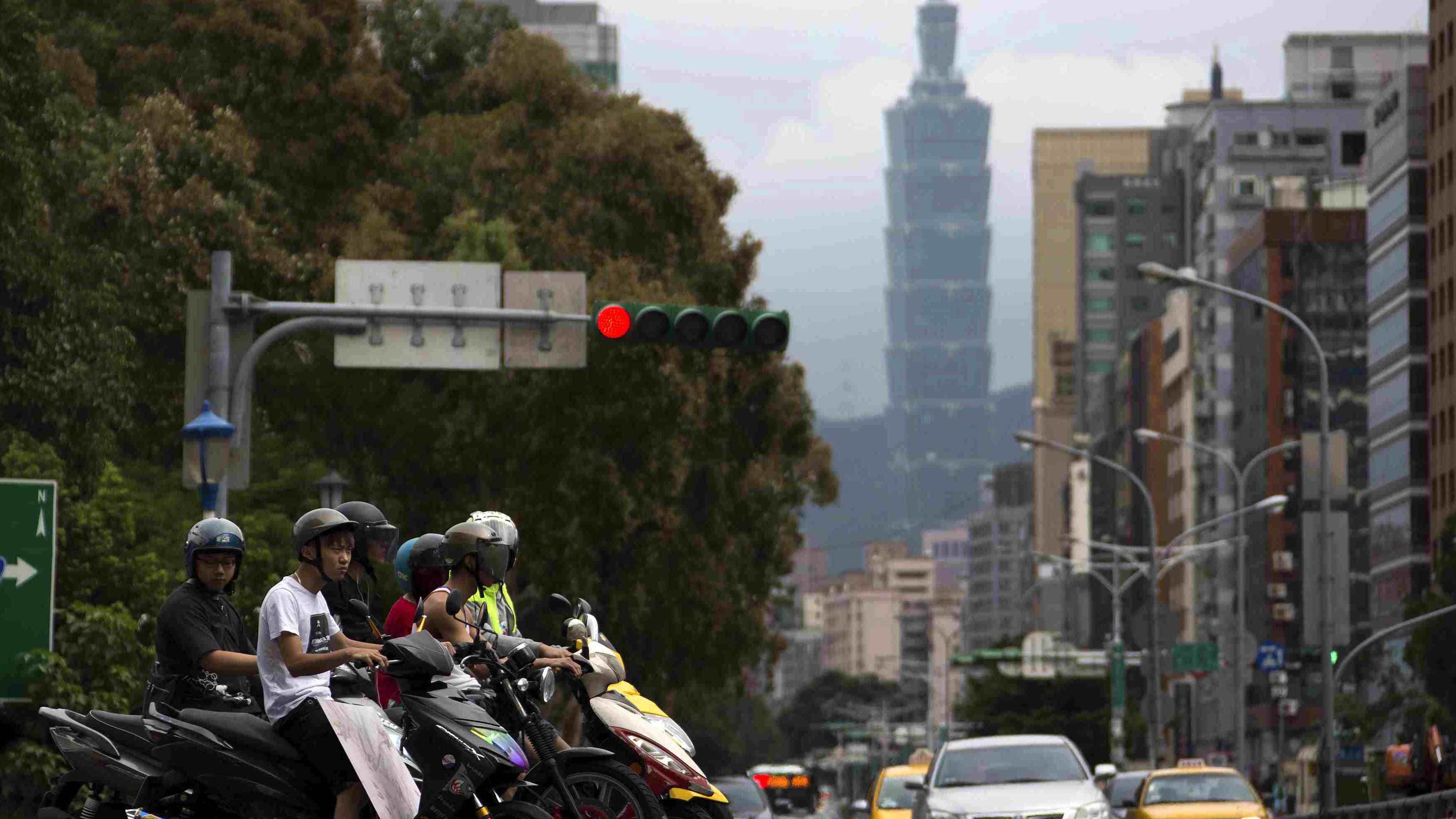
Opinion
22:48, 03-May-2019
Cutting ties with Taiwan, who's next?
Updated
13:58, 04-May-2019
Yang Chuchu

Editor's note: The article is based on an interview with Shi Yinhong, head of the Center for American Studies at Renmin University of China. The article reflects the expert's opinion, and not necessarily the views of CGTN.
Solomon Islands Prime Minister Manasseh Sogavare's government is reportedly considering cutting ties with Taiwan and establishing diplomatic ties with the People's Republic of China.
The reasons behind this consideration can be partly attributed to the increasingly close ties between the Solomon Islands and the People's Republic of China, which is the country's largest trade partner and purchases about 65 percent of its exports. Furthermore, based on data from the Foreign Investment Division of the Solomon Islands, the Chinese mainland accounts for 45 percent of the country's total foreign investment.

Prime Minister of the Solomon Islands Manasseh Sogavare addresses attendees during the 70th session of the United Nations General Assembly at the U.N. Headquarters, October 1, 2015, New York. /VCG
Prime Minister of the Solomon Islands Manasseh Sogavare addresses attendees during the 70th session of the United Nations General Assembly at the U.N. Headquarters, October 1, 2015, New York. /VCG
Shi Yinhong, head of the Center for American Studies at Renmin University of China, believes China can provide a lot to the Solomon Islands' economic and social construction, and China's growing global influence may prompt the country to rethink the bilateral relationship.
The island nation is one of Taiwan's 17 remaining allies and the largest of its six Pacific allies. "In regional terms, the Solomons is the biggest country that has relations with Taiwan, out of the six, and there might be a feeling that it signals the beginning of the end," James Batley, former Australian high commissioner to the Solomon Islands, said in a recent article in The Australian, the most circulated newspaper in Australia.
If the island breaks its ties with Taiwan, it can have an overflow effect on Taiwan's other Pacific allies, as well as influencing Taiwan itself, Shi said.
More and more people in Taiwan will realize the country is gradually losing allies. However, pro-independence forces in Taiwan may use this to attack the Chinese mainland.

Taipei City. /VCG photo
Taipei City. /VCG photo
Since Tsai Ing-wen's administration came to power, five of Taiwan's allies have broken their ties with Taiwan. Besides the Solomon Islands, news has surfaced about unstable ties between Taiwan and its other allies, including Swaziland and Haiti. El Salvador cut ties with Taiwan in August 2018 and established diplomatic relations with the People's Republic of China.
Inside Taiwan, the Tsai administration is also trapped in a rigorous situation, facing stagnant wages, low growth and a sluggish market. And Tsai's hostile attitude toward the Chinese mainland has worsened the situation as the once frequent economic exchanges have helped Taiwan's economy. Over 40 percent of Taiwan's exports and 70 percent of its outbound investments go to the Chinese mainland.
However, the administration's pro-independence stance has damaged the exchanges between Taiwan and the huge Chinese mainland market in industries such as tourism and agriculture. According to the Taiwan Tourism Bureau, a total of 2.69 million Chinese mainland tourists visited Taiwan in 2018, a drop of 800,000 visitors compared to 2016.
The depressing economic performance and the unsatisfactory cross-Strait ties can to some extent explain the crushing defeat of the Democratic Progressive Party, then led by Tsai, in local elections at the end of last year, only grabbing six seats among the 22 county and city chief posts.
Last year, three countries severed ties with Taiwan. If Tsai's administration still follows the path of severing ties with the mainland, it should be known that the Chinese mainland has the ability and influence to deprive Taiwan of its allies, Shi said.
"The trend will continue," Shi said, "Taiwan may focus its limited resources on a few allies, but its day has gone."
(Cover: Cross-Strait relations have deteriorated since Tsai Ing-wen took power as Taiwan's leader in 2016. Her administration refuses to endorse the one-China principle. /VCG Photo)
(If you want to contribute and have specific expertise, please contact us at opinions@cgtn.com.)

SITEMAP
Copyright © 2018 CGTN. Beijing ICP prepared NO.16065310-3
Copyright © 2018 CGTN. Beijing ICP prepared NO.16065310-3